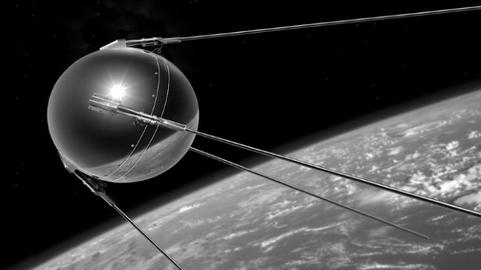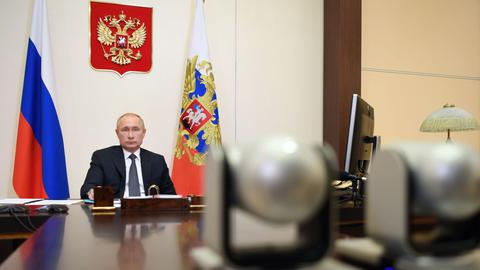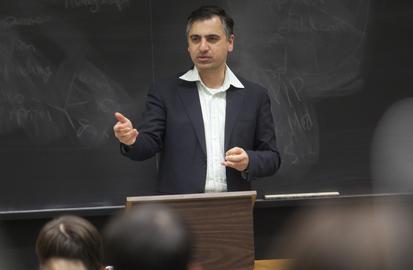Ilya Klishin is a Russian journalist and media consultant and the former editor-in-chief of TV Rain, Russia's only independent TV station. He has contributed to Russia's most prominent independent press outlets, including Vedomosti, Snob, OpenSpace and others, and to the English-language Moscow Times, and had a central role in anti-electoral fraud campaigns after Russia's December 2011 parliamentary elections.
In a guest post for IranWire's ongoing series about disinformation during the coronavirus pandemic, Ilya Klishin appraises the Russian “Sputnik-V” vaccine.
On October 4, 1957 a truly significant event in the history of humanity took place. An artificial satellite was launched into orbit around our planet Earth for the first time. It was called Sputnik-1, which translated from Russian just means “satellite”.
Yes, the engineers and mechanics who blazed the trail to this launch often worked in the shadows, in closed institutes behind barbed wire, and some, such as Sergei Korolev, the father of Soviet space exploration, managed to get to know the Siberian camps personally. Yes, a poor country that had been wrecked by two world wars, mass repression and no less massive construction projects launched that satellite. A country where half the population lived in villages and had been driven into the quasi-slavery of collective farming.
Despite all of this (or perhaps because they didn’t know much about it), people all over the world – from Tokyo to New York, from Buenos Aires to Stockholm – experienced real universal joy in that moment. And they did so again three and a half years later, when Soviet cosmonaut Yuri Gagarin became the first man in space and his picture appeared on the front pages of all the world’s leading newspapers and magazines.
For a brief moment back then, in 1957 and again in 1961, people forgot about the divisions between the Western and Eastern blocs, and between communists and capitalists, and were instead inspired by the romantic dream of conquering space: the dream of several generations, which has somewhat faded today (but that’s another conversation topic entirely).
In the summer of 2020 the new Russia, the Russia of Vladimir Putin, seemingly tried to repeat the transnational triumph of Nikita Khrushchev’s USSR. At a time when the whole planet was struggling with an unprecedented pandemic, when not economies but the foundations of quotidian life were collapsing, Russian scientists came out in front of the cameras to proclaim that they had developed the first coronavirus vaccine in the world. And it was called... Sputnik-V. Yes, like the space satellite from 1957. The reference was more than transparent.
But what happened next? Nothing! The whole world shrugged its shoulders, and many laughed their heads off. Even the people of Russia themselves received the news with a fair amount of scepticism, even cynicism.
Why?
That’s a very good question, and one that exposes the depths of the nature of the current political regime in Russia. It is a sham in all dimensions. It doesn’t just generate fake news, it is itself entirely fake, through and through.
The concept of Potemkin villages (fake frontages of pastoral homes set up on the Ukrainian steppe along Catherine the Great’s route to Crimea), which has even entered the English lexicon, can be used describe anything you like in Russia.
See for yourself: the political leadership in the Kremlin set scientists the task of developing a vaccine first at any price. They did it, yes. But how? They just announced that it had been created before the third stage of the clinical trials required according to the normal protocols of developing any vaccine. Basically all the other vaccines in the world were more or less at the same stage at that point.
Next. The task was set to promote this as an enormous achievement of Russian science and Russia in general. This failed almost immediately abroad, as literally everyone laughed at the “breakthrough” – from stand-up comedians to bloggers. But it was fed into the internal market for propaganda purposes.
And the propagandists sit there, confused with journalists, on the big Russian websites and TV channels, building informational Potemkin villages out of their imaginations. They say that Russia is better than everyone, that the Russian vaccine is the most effective one, that it’s the one that poor countries should buy because it’s cheaper, and that it’s been praised by foreign scientists and/or the media (this news appeared, for example, on the website of the state TV channel Vesti.ru – and it was simply based on a false translation from British newspapers).
But in fact it’s none of this. Zero, zilch, nada. It’s just hastily applied decoration. A media simulacrum. Even all the foreign sources are either misquoted or paid, or they are websites in English or German that were created by people from Moscow (this is a popular method).
And the average Russian person reading or watching all this either swears or believes that our guys are good after all. They’ve wiped the floor with the West again. We're ahead of the whole planet. Like in the USSR. And so it's not so depressing sitting in your small flat in a 25-storey building in an industrial district, looking at the grey autumn sky and realising that due to the collapse of the rouble your salary has been halved in the past few years and that you could be laid off soon because of coronavirus, and you won’t find a new job.
This is an informational painkiller for the soul. Which fewer and fewer people believe. Even inside Russia. Because you can escape from reality for a while. But not forever.
visit the accountability section
In this section of Iran Wire, you can contact the officials and launch your campaign for various problems























comments